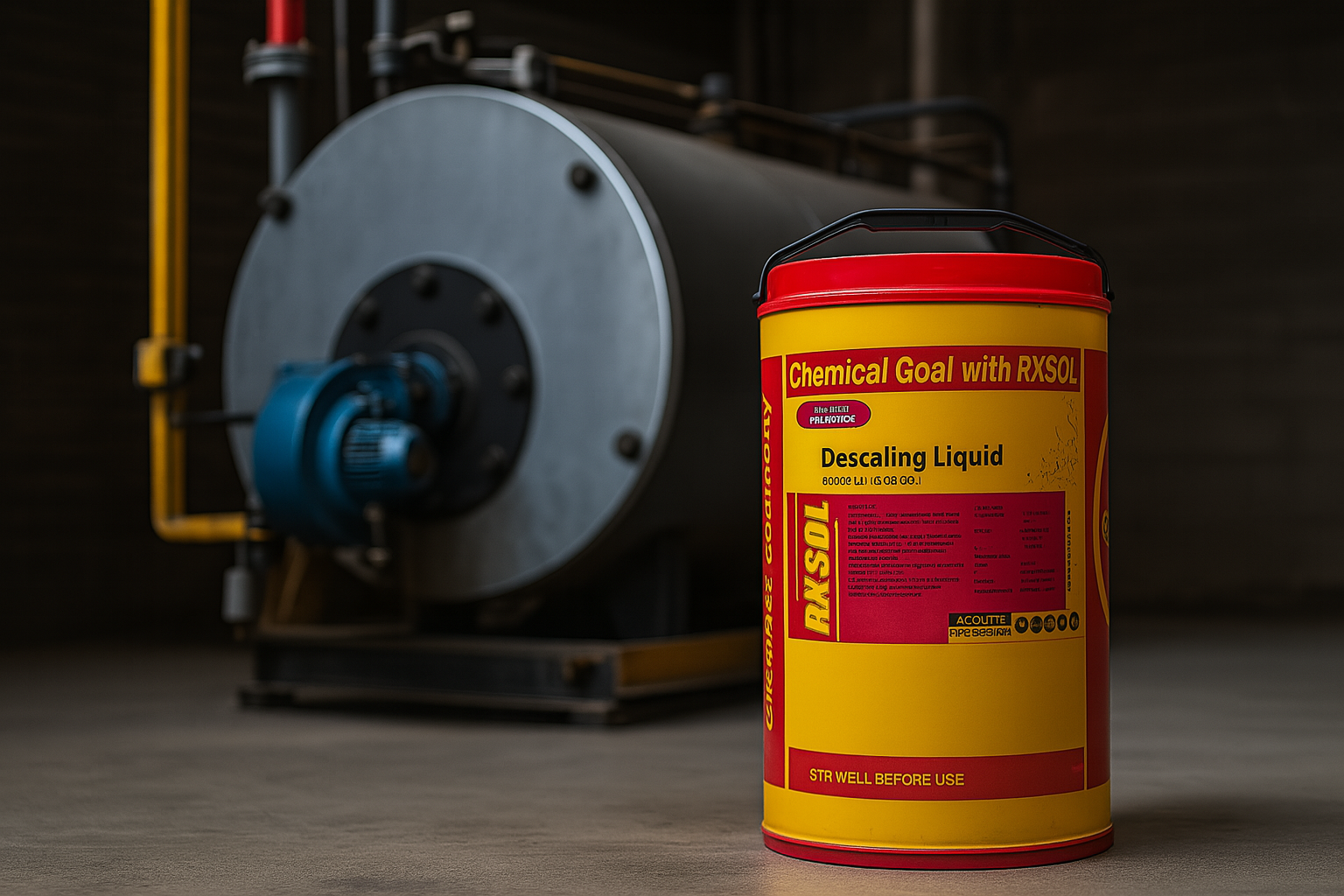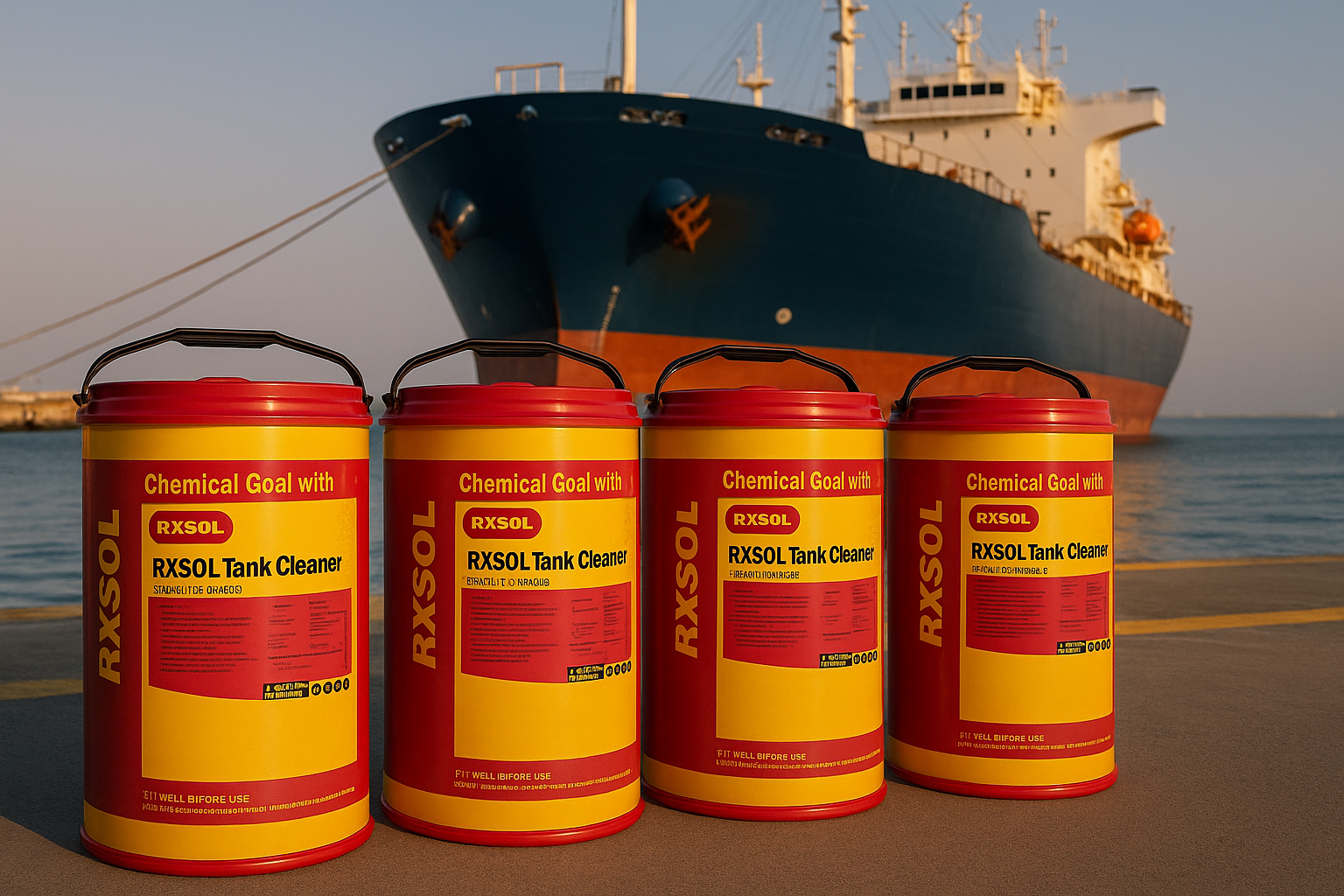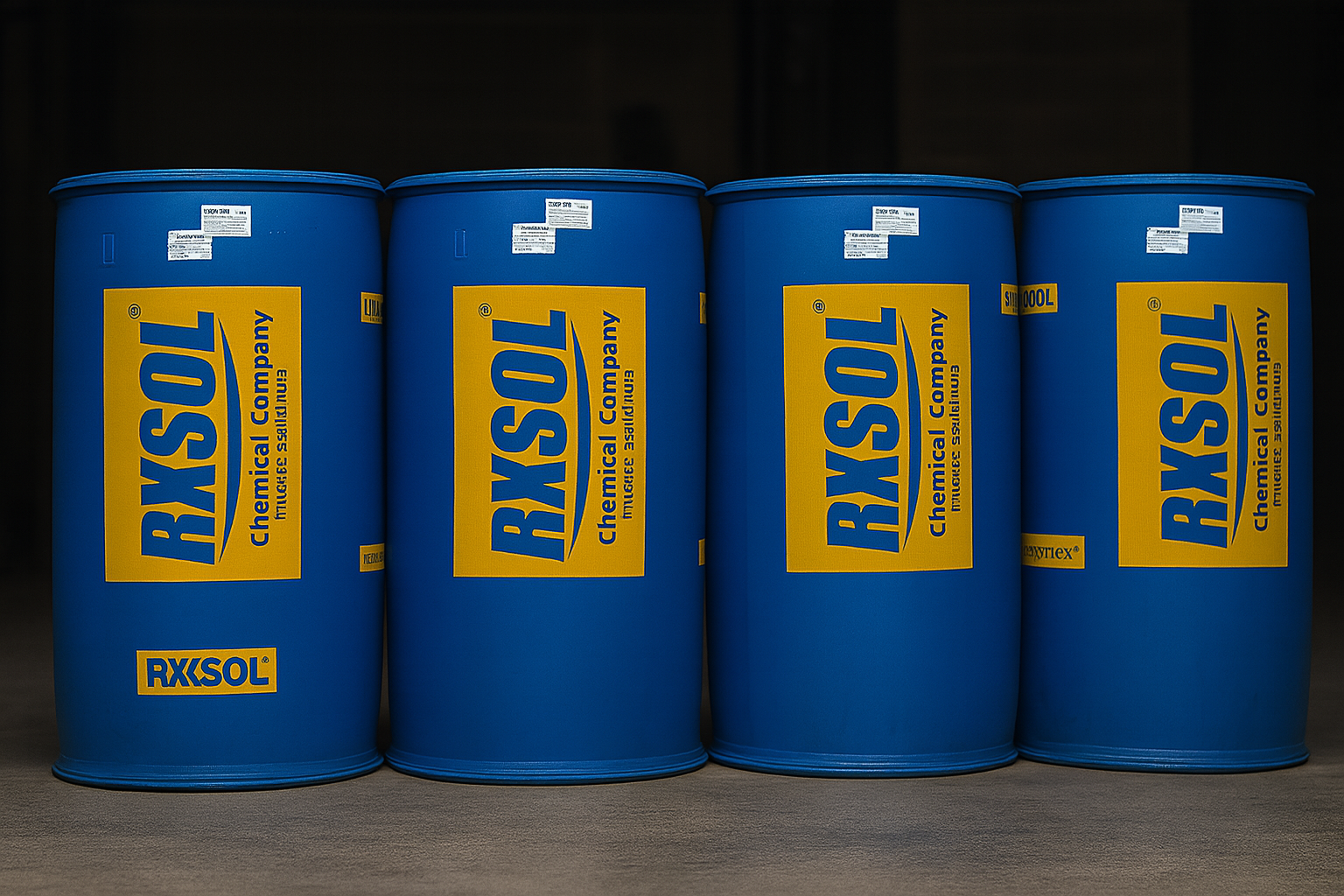
Boiler / Cooling Tower Chemicals
Specialized formulatory products for efficient maintenance of boiler units and chiller plants of industries.
View All Water Treatment Chemicals- Corrosion Scale Treatment Boiler - RXSOL-42-4029-025
- One Shot Universal LiquiTreat - RXSOL-50-5001-020
- MULTIPLUS BWT - RXSOL-50-5011-020
- Sludge Conditioner - RXSOL-50-5008-020
- Oxygen Scavenger Plus - RXSOL-50-5022-025
- Condensol Corrosion Control - RXSOL-50-5005-025
- RXSOL 2000 Corrosion Scale Inhibitor - RXSOL-40-2000-025
- Corrosion Inhibitor MULTI Metal Protection - RXSOL-40-4011-025
- Biocide MICRO Cooling Water - RXSOL-40-4009-025
- Corrosion Inhibitor Antifoulant - RXSOL-40-4027-025
- Antiscalant Antifoulant - RXSOL-33-3302-025
- Cooling Water Test Kit - RXSOL-62-5508-001

Marine Deck Engine Chemicals
One STOP manufacturer for all of vessel's chemical needs - chemicals, test kits, applicators, etc
View All Marine Chemicals- Heavy Duty Degreaser - RXSOL-10-1005-025
- TPOL Heavy Duty - RXSOL-20-T300-025
- All Purpose Cleaner - RXSOL-12-1501-020
- Fuel Emulsion Breaker - RXSOL-70-7003-020
- Evaporator Treatment - RXSOL-51-6001-020
- Electrosol Electrical Cleaner - RXSOL-16-1009-025
- Carbon Remover - RXSOL-16-1003-025
- Rust Stain Remover RSR - RXSOL-13-1096-025
- Enviro Degreaser Cleaner - RXSOL-20-3001-025
- Hand Cleaner Paste - RXSOL-16-1001-001
- Slip Barrier Coat HOLD - RXSOL-22-2210-210
- RXTuff High Foam - RXSOL-22-3019-210
- Metal Clean Bright HD - RXSOL-20-1011-020
- Coal Remover RX Hold - RXSOL-22-2215-210
- RXSOL PCS Pet Coke Cleaner Hold - RXSOL-22-2208-025
- Acqua Tuff High Foam - RXSOL-22-3033-210
- Alkaline Safety Liquid - RXSOL-20-2005-026

Raw Material Chemicals
Ready stock of fast-running chemical raw materials in 6 key locations of India
View All Chemicals- Caustic Soda
- Caustic Potash
- Sodium Nitrite
- Sodium Bisulphite
- Sodium Bicarbonate
- Acid Slurry
- SLES
- SLS
- Nonyl Phenol Ethoxylates
- Hydrochloric Acid
- Sodium Hypochlorite
- Phosphoric Acid
- Mono Ethylene Glycol

